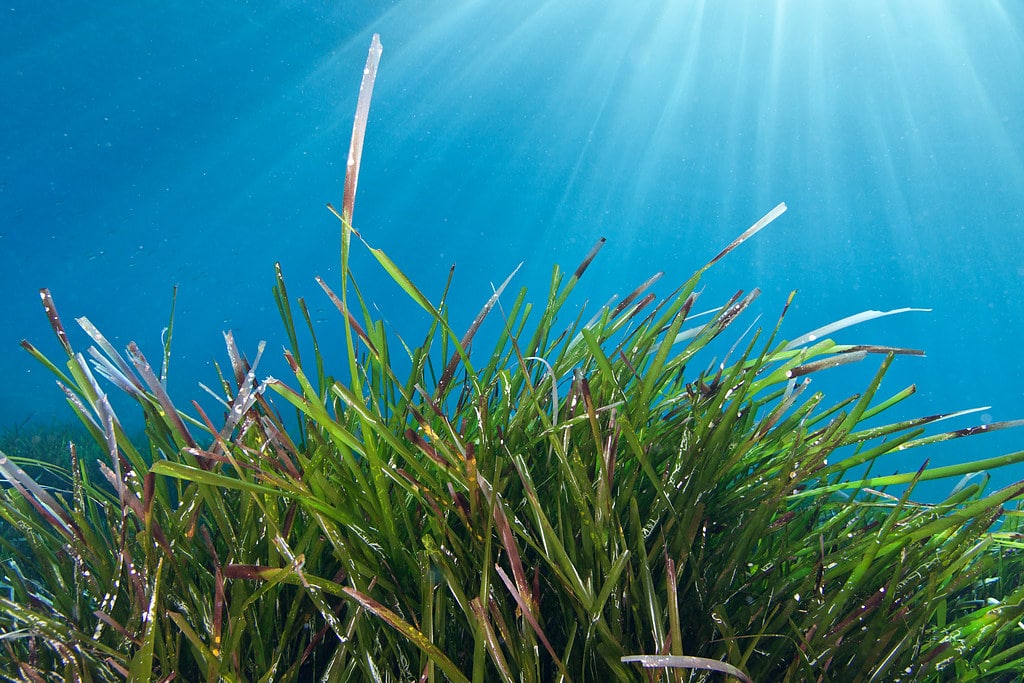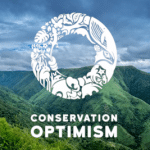Wondering what went right this week in the conservation world? We’ve got you covered with our Conservation Optimism Round-Up! We are collating stories of optimism from around the globe so that you never miss your dose of weekly motivation.
1. Dogger Bank is about more than shipping forecasts: it shows how we can rewild our seas
” A huge ecological experiment begins today on Dogger Bank, part of the sunken landmass that once formed a bridge between Britain and mainland Europe. Trawling and dredging – fishing activities that not only scoop up fish and shellfish but also plough through plants and animals on the sea floor – are now banned.”
Almost as rare as Bluefin Tuna - a Brexit good news story! Great piece by @CRHClover on how Dogger Bank shows we can rewild our seas #ConservationOptimism @bluemarinef @whalesorg @mcsuk @NOCnews https://t.co/peTMvTEZk5
— Ed Fox (@Sandboy39) June 13, 2022
2. For 20 years, Comoros had only 1 national park. It’s now creating 5 more
” Comoros, an archipelagic nation in the western Indian Ocean, is dramatically expanding its network of protected areas (PAs) from one to six, including three new marine protected areas (MPAs). The idea is to replicate the co-management approach at Mohéli National Park, the country’s first and currently only national park, created in 2001 as an MPA. “
#Comoros is creating 5 new #NationalParks, including 3 #marine #ProtectedAreas that will conserve over 400 sq km of tropical #ocean ecosystems!#blueplanet #nature #wildlife #biodiversity #optimism #conservationoptimism #conservation #LetNatureThrivehttps://t.co/5xt25BWplv
— Global Conservation Solutions (@_GCS_) June 15, 2022
3. State says Washington’s wolf population grew 16% last year
” As of Dec. 31, 2021, the department said there were 206 wolves in 33 packs in Washington. Nineteen of these were successful breeding pairs. This is up from 178 wolves in 29 packs and 16 breeding pairs in the 2020 count. ”
#ConservationOptimism : According to the state Department of Fish and Wildlife, Washington’s wolf population grew for the 13th consecutive year- up 16% in 2021. For more info on Washington wolves: https://t.co/51yT8CkUWu pic.twitter.com/3kBfwYC1WR
— Key Conservation (@KeyConservation) June 13, 2022
4. Britain’s first wetland ‘super reserve’ – and why it’s so significant
” This was highlighted with the recent announcement of a 15,000-acre Somerset Wetlands National Nature Reserve. This is the UK’s second so-called “super reserve” after Purbeck Heaths in Dorset. These reserves take in a mosaic of different habitats, and by linking them all together as part of an entire landscape management plan, it is hoped the region as a whole will benefit. “
The 15,000 acre super reserve will link up a mosaic of different habitats in Somerset, UK including fens, reed beds and salt marshes.#ConservationOptimism #Wetlands #SuperReserve https://t.co/gg2Y6DL8HH
— Conservation Success Stories (@Cons_Success) June 12, 2022
5. 139 countries get head start on efforts to reverse species loss
” The new financing from the Global Environment Facility (GEF), totaling $43 million, will give developing countries the means to quickly put the anticipated Post-2020 Global Biodiversity Framework into practice and make headway towards the goal of halting and reversing species loss this decade. “
To commemorate #BiodiversityDay this year, @theGEF, @UNDP and @UNEP announced a joint commitment to support the efforts of 139 countries to conserve and restore #biodiversity 🦋🌱 and ecosystems 🌳 and implement the #Post2020 global biodiversity framework.https://t.co/Hy7tXl2V2y
— BES-Net (Biodiversity and Ecosystems Network) (@BESNet_UNDP) June 15, 2022
6. A seagrass restoration project to preserve the past may also protect the future
” Inani Arifin, 40, is a resident of West Yensawai village in Indonesia’s Raja Ampat archipelago, where the coastal ecosystem has been declining due to climate change impacts and development. Almira Nadia Kusuma is a young marine scientist who has studied seagrass for years. Together, they lead a group of teenagers in West Yensawai in a project to replant seagrass, aiming to protect the village from coastal erosion. “
Each year, 7% of #seagrass disappears.
— Synchronicity Earth (@SynchEarth) June 14, 2022
A community-led restoration project in West Yensawai, Indonesia has given conservationists new hope for seagrass, as well as inspired women to become more involved in #conservation.https://t.co/e6SLbmxc3W #RestoreNature #ClimateChange
7. Australia Beaches See Plastic Pollution Drop by 30% in 6 Years
” Plastic waste across Australia’s beaches and coastlines has declined by a third over the past six years as a result of a wide range of local initiatives to reduce litter, according to research by Australia’s Science Agency”
Good news #ForNature from #Australia 🇦🇺
— ipbes (@IPBES) June 14, 2022
Plastic waste across Australia’s beaches and coastlines has declined by a third over the past 6 years as a result of a wide range of local initiatives to reduce litter, according to @CSIRO#ConservationOptimism https://t.co/IzYUrqiBpO pic.twitter.com/Pk11b6oTK1
Have a story to share for our weekly round-up? Use #ConservationOptimism on Twitter, Facebook, LinkedIn and Instagram!


